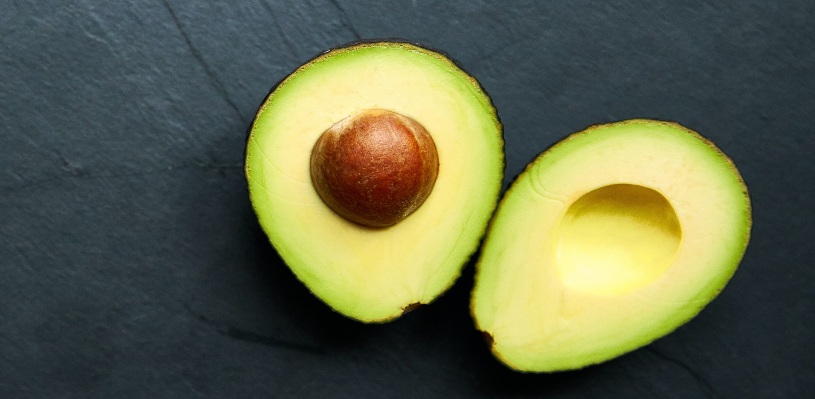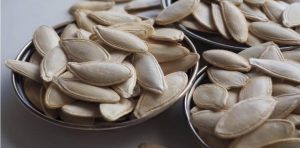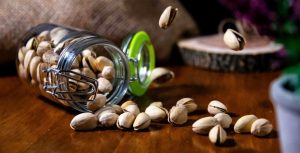Avocados have long been used as traditional herbal medicine, especially in Mexico and its surrounding region. Nutritional science supports that the fruit has therapeutic qualities. Not only the flesh but also the seed and leaves of the avocado fruit can benefit human health.
Studies show that avocado consumption can help lower high blood pressure and benefit cardiovascular health.
The rich nutrient content and healthy fatty acids of avocado are shown as the main reason for the blood pressure-lowering effect of the fruit.
This article will discuss scientific studies indicating avocados’ blood pressure-lowering effect and how this nutritious fruit can help your blood pressure.
But first, let’s give a brief definition of high blood pressure.
What is High Blood Pressure?
Blood pressure is the force of blood pushing against the walls of blood vessels, also called arteries. It is measured with 2 numbers:
- The systolic pressure (the first number) is the pressure when the heart contracts.
- The diastolic pressure (the second number) is the pressure between heartbeats.
Both systolic and diastolic pressure is measured in millimetres of mercury (mmHg). According to American Health Association, healthy or normal blood pressure should be less than 120/80 mmHg.
As per the American College of Cardiology/American Heart Association (2017) Guideline; the diagnosis of hypertension is made when blood pressure readings are consistently 130/80 mm Hg or higher.
High blood pressure, also called hypertension, threatens the life of a large population of the world. For this reason, effective and applicable methods that can provide benefits in reducing high blood pressure are sought every day.
Preventing hypertension with nutrition is a fundamental approach to reducing the side effects of drugs as well as health expenditures. Avocado is one of the foods to add to the diet, with its important vitamin, mineral, and healthy fat content.
How Can Avocados Help Lower Blood Pressure?
A detailed analysis shows the safety of avocado as herbal medicine against hypertension in hypertensive and healthy animals. Researchers observed that avocado is safe to use against high blood pressure as a herbal medicine product.
Many people have high blood pressure problems due to dysfunction in their kidneys. It is shown that avocados may prevent kidney injury and oxidative stress in the kidneys, hinting that avocados can be potentially beneficial against hypertension and other cardiovascular diseases.
Avocado can also help to prevent angiotensin-II stimulation. Angiotensin-II is a specific molecule produced by our bodies. Its function is to increase blood pressure while decreasing the water loss by urine and stimulating the blood vessel muscle to contract. Together these mechanisms change blood pressure.
According to Harvard University, 1 medium size of avocado contains:
- 240 calories,
- 13 grams of carbohydrates,
- 3 grams of protein,
- 22 grams fat
- 15 grams monounsaturated,
- 4 grams polyunsaturated,
- 3 grams saturated,
- 10 grams of fibre,
- 11 milligrams sodium
- 487 mg potassium
Avocado fruit contains no cholesterol, low sodium, and high potassium, which makes this fruit perfect for cardiovascular health.
Studies on Avocados’ Effect on Blood Pressure
A study involving 158 706 Mexican adults showed that consuming more than five servings (1 serving: ½ avocado) of avocados per week was associated with a 17% reduction in hypertension compared to those who did not consume or eat less.
Avocado consumption increases oleic acid in the body. It is one of the beneficial fatty acids to maintain cardiovascular health. Oleic acid reduces oxidative stress (damage) in the heart and vessel cells. The heart-protective effects of the Mediterranean diet are also due to the oleic acid content in olive oil. Both avocado and olive oil are rich in oleic acid and have a similar unsaturated fat/saturated fat ratio (6:1).
Avocados also have a high potassium content. Studies showed adequate intake of potassium is essential to lower blood pressure.
Avocado plant leaves also benefit in lowering high blood pressure by relaxing blood vessel walls.
A meta-analysis study showed that avocados benefit not only high blood pressure but general cardiovascular health. In this study, avocados showed promising results in increasing good cholesterol (HDL). The underlying mechanism is that HDL cholesterol helps to return blood lipids to the liver and lower fat circulation. Since HDL cholesterol helps prevent the accumulation of cholesterol in the vessels, it prevents high blood pressure by significantly reducing vascular damage.
How many Avocados are Enough to Lower Blood Pressure?
Eating one whole avocado or half of it per day should be enough to see the beneficial effects of the fruit. If you prefer to eat one avocado, it is important to divide it into meals to balance your fat and calorie intake throughout the day. Although it has health benefits, you should note that avocado is also a high source of fat.
Dash Diet + Foods that Lower Blood Pressure
Avocado can easily be incorporated into the Mediterranean or DASH diet, which stands for “The Dietary Approaches to Stop Hypertension”. Dash Diet has been implemented since 1997 to prevent the spread of high blood pressure in the community.
The DASH diet guide includes fruits, vegetables, low-fat dairy, whole grains, fish, poultry, beans, and nuts and it recommends reducing sodium, sugary foods and drinks, and red meat. The diet is heart-friendly as it limits saturated and trans fats while increasing the intake of potassium, magnesium, calcium, protein, and fibre to control blood pressure.
The following foods have also been shown to help lower blood pressure. By clicking on the titles below you can read the articles and learn how these healthy foods can help lower your blood pressure.
- Do Pistachios Lower Blood Pressure?
- Pumpkin Seeds Help Lower Blood Pressure
- Can Pomegranate Juice Actually Lower Blood Pressure?
- Does Kiwifruit Help Lower Blood Pressure?
- Watermelon consumption can help lower blood pressure
Summary
- You may want to consider adding avocados to your diet as the fruit has heart-protective effects with its high levels of unsaturated fatty acid, fibre, potassium, and magnesium content.
- Since it is low in sodium and high in potassium, avocados appear to be ideal for people with high blood pressure.
- Nevertheless, don’t forget to consume avocados in moderation as the fruit is very high in fat.
Sevginur Akdas is a Clinical Dietitian, currently pursuing her PhD on metabolism, chronic diseases and clinical nutrition.
Sevginur has many publications with dozens of citations as a part of a research team.
She is also a professional health writer. Using her professional knowledge and exceptional research skills, she participated in academic book chapters.
Moreover, Sevginur wrote articles monthly as a columnist for Popular Science Magazine from 2017 to 2019.
To view the studies Sevginur has been involved in, you can click the following links: ResearchGate -- Google Scholar
Click here to see her full bio.





